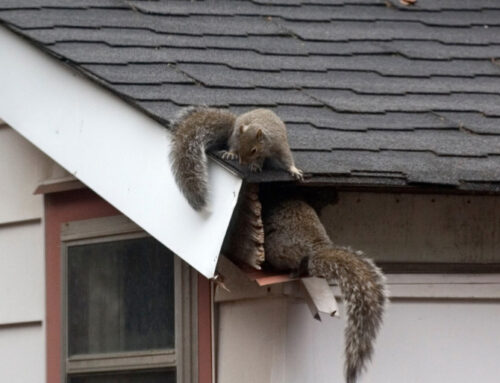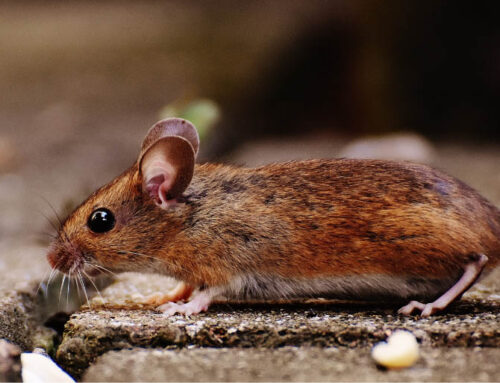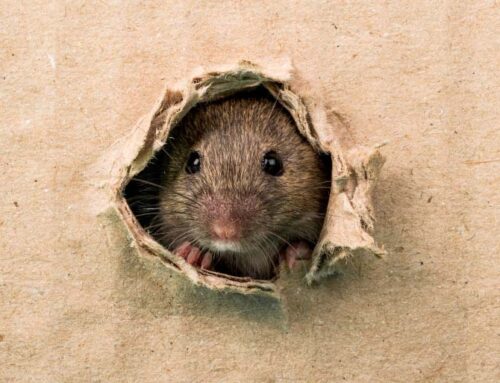When Iowa’s winter sets in, stink bugs seek warmth and shelter indoors, entering through cracks and gaps to settle in basements, attics, or walls.
Des Moines homes are especially at risk due to nearby fields and wooded areas that make it easy for these pests to invade.
They hibernate in a state called diapause and are drawn to warm, sheltered spaces, making homes a prime target.
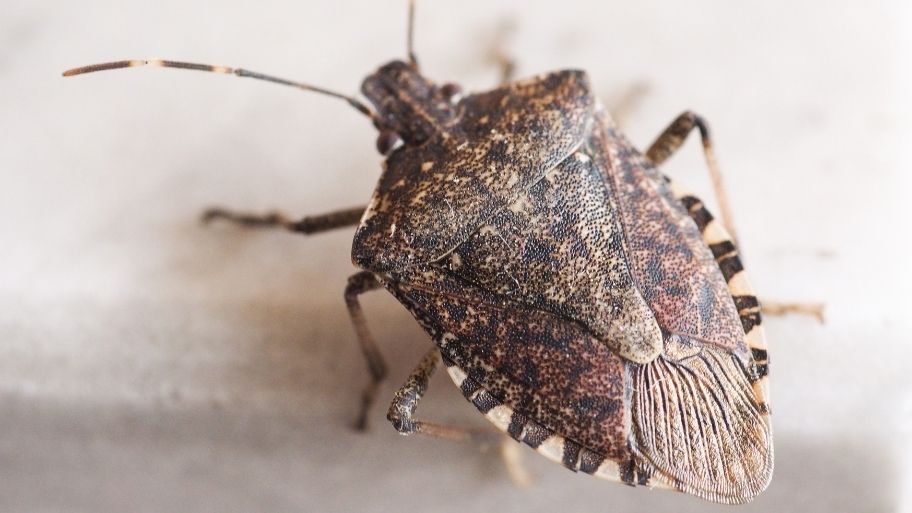
Understanding why stink bugs invade is important, but the real challenge lies in how to get rid of stink bugs effectively.
Luckily, with the right methods, you can quickly eliminate these pests and keep your home stink-bug-free this winter.
Quick and Effective Ways to Remove Stink Bugs
Once stink bugs have made their way indoors, removing them quickly is essential. Here are five practical and effective methods to help you eliminate stink bugs from your home this winter:
1. Seal Entry Points
To stop stink bugs from becoming a recurring problem, start by blocking their way in.
Inspect doors, windows, and vents for gaps or cracks and seal them up with weather stripping or caulk.
Cover any open vents with mesh screens to keep stink bugs out while maintaining airflow. This step doesn’t just prevent stink bugs; it can also help with other pests year-round.
2. Use Soapy Water Traps
A simple DIY method to get rid of stink bugs is to use soapy water traps.
Fill a bucket or bowl with warm, soapy water and place it near areas where stink bugs gather.
The bugs are naturally inclined to drop when disturbed, falling into the water where the soap prevents them from escaping. This method is safe, affordable, and effective.
3. Vacuum Them Safely
For a fast and hands-off solution, vacuum stink bugs using a model with disposable bags.
This method works well for large infestations, but be sure to dispose of the bag immediately to avoid lingering odors.
If you’re asking, “How do I get rid of stink bugs quickly?”, this is one of the easiest ways.
4. Deploy Sticky Traps at Entryways
Sticky traps are excellent for intercepting stink bugs before they spread throughout your home. Place traps near windows, doors, and other entry points to catch bugs as they move.
While they won’t eliminate the problem entirely, sticky traps are a great supplemental tool to reduce stink bug activity.
5. Use Natural Repellents
Essential oils like peppermint or neem oil are effective at repelling stink bugs without using harsh chemicals.
Make a spray by mixing a few amounts of oil with water and applying it around doors, windows, and other areas where stink bugs are active.
Not only does this deter pests, but it also leaves your home smelling fresh.
How to Prevent Stink Bugs from Returning
After you’ve successfully gotten rid of stink bugs, the next step is ensuring they don’t come back. Stopping future invasions requires a combination of simple home maintenance and strategic prevention measures.
Here are four effective ways to keep stink bugs out for good:
Why Chemical Insecticides Aren’t the Best Solution
Chemical insecticides might seem like a quick fix when dealing with stink bugs, but they come with serious drawbacks.
Here’s why they aren’t the best option, and what you can do instead:
Reason #1: Environmental Risks
Chemical insecticides can harm beneficial insects like bees and butterflies, disrupt ecosystems, and even contaminate soil or water sources near your home.
Choosing eco-friendly solutions minimizes this impact.
Reason #2: Safety Concerns for Children and Pets
Toxic residues from chemical treatments can linger, putting children and pets at risk.
Natural methods like essential oils and soapy water are much safer alternatives.
Reason #3: Temporary Fixes, Not Long-Term Solutions
Insecticides only target the stink bugs you see, leaving your home vulnerable to re-infestation.
Preventative steps like sealing entry points and using traps address the root cause.
Reason #4: Better Alternatives Are Available
Natural and mechanical solutions, such as peppermint oil sprays, sticky traps, or soapy water traps, are highly effective without the risks.
Professional pest control services can also provide humane, chemical-free treatments for larger infestations.
By avoiding chemical insecticides, you protect your family, pets, and the environment while still effectively getting rid of stink bugs. Natural and mechanical methods ensure a safer, longer-lasting solution for your home.
FAQ: Common Stink Bug Questions
If you’re dealing with stink bugs for the first time, you might have some questions about these pests. Here are answers to some of the most common concerns homeowners have:
Q 1: Do stink bugs cause damage to homes?
No, stink bugs don’t cause structural damage to homes. Unlike termites or rodents, they don’t chew through wood, wires, or insulation.
However, they can be a nuisance by invading your living spaces in large numbers, and if crushed, they release a foul-smelling odor that can linger.
Q 2: Are stink bugs harmful to humans?
Stink bugs are not harmful to humans—they don’t bite, sting, or spread diseases.
Their biggest defense is their unpleasant smell, which is released when they feel threatened.
While harmless, their odor and presence can make them an unwelcome pest in your home.
Q 3: How long do stink bugs stay indoors?
Stink bugs typically stay indoors throughout the winter, entering a state of dormancy called diapause.
Once temperatures warm up in the spring, they become active again and will try to move back outside.
If they’re not removed or prevented, they can become a recurring problem year after year.
Professional Stink Bug Control in Des Moines
Dealing with stink bugs can be time-consuming and frustrating, especially when they keep finding their way back into your home.
While DIY methods can help with small infestations, managing a recurring stink bug problem during Iowa’s harsh winters often requires professional expertise.
That’s where Bobcat Wildlife & Pest Management comes in.
With over a decade of experience serving Des Moines and the surrounding areas, Bobcat Wildlife & Pest Management specializes in humane, eco-friendly pest control solutions.
Our licensed technicians understand the unique challenges of Iowa winters and use targeted strategies to eliminate stink bugs while preventing them from coming back.
Whether it’s sealing entry points, safely removing pests, or offering long-term prevention, we tailor our services to meet your home’s specific needs.
Here’s why homeowners in Des Moines trust us:
Don’t let stink bugs invade your home this winter. Contact Bobcat Wildlife & Pest Management today to schedule an inspection and take that first step toward a pest-free home.
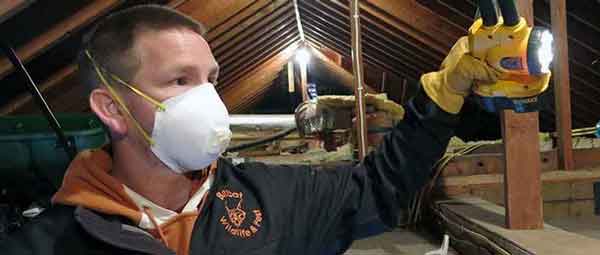
About the Author
Gene Spaulding, Owner and Founder of Bobcat Wildlife & Pest Management, has been at the forefront of pest and wildlife control since 2008. With over 17 years of hands-on experience, Gene combines his expertise and passion to deliver effective and humane pest management solutions to homeowners and businesses across the Des Moines Metro area. Guided by the motto “Your Property, Our Priority,” Gene ensures that Bobcat Wildlife & Pest Management remains a trusted partner for comprehensive pest and wildlife services.

